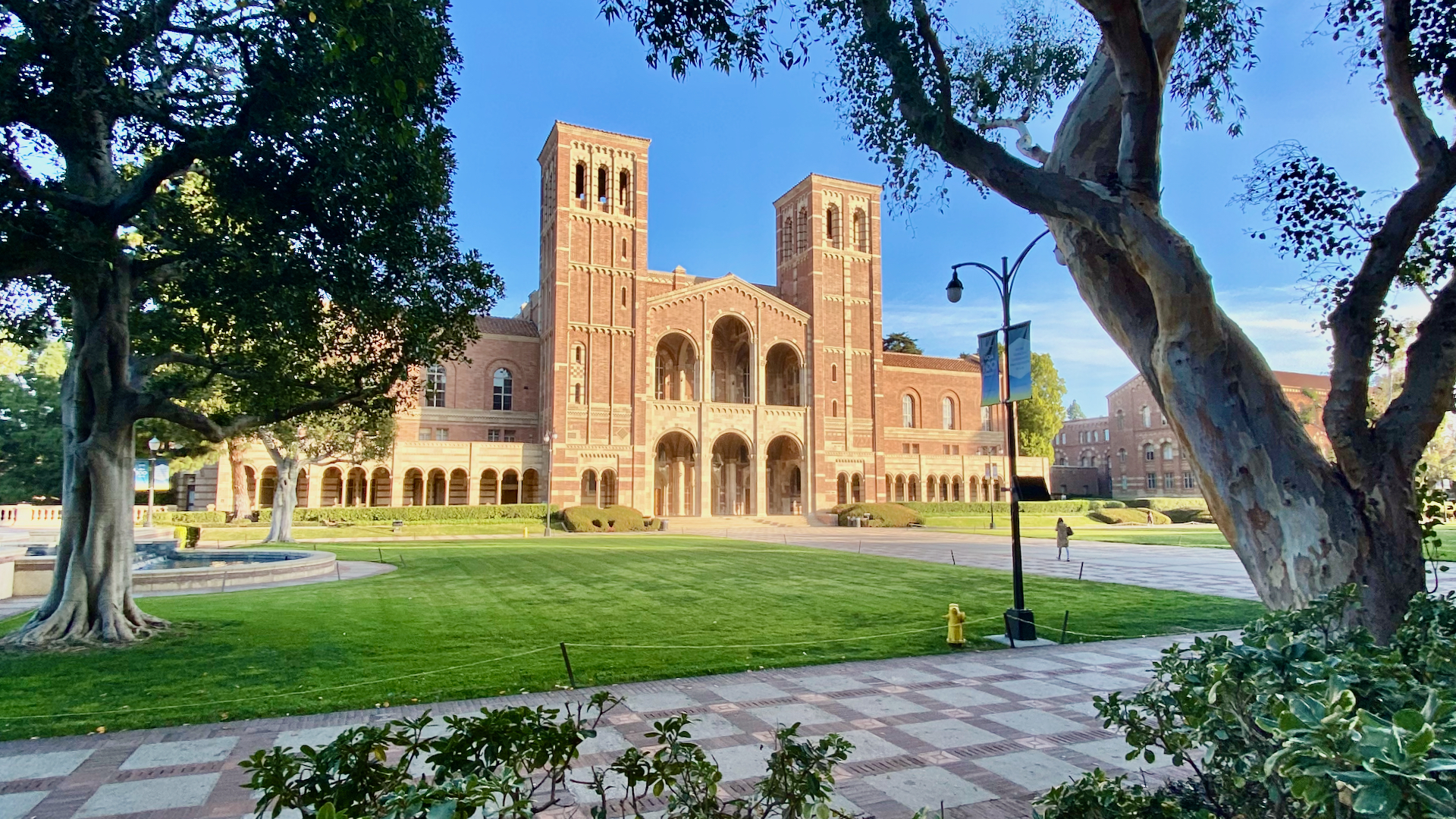Over the 2024/25 academic year, we followed a lively and diverse cohort of third-year physics students as they spent their time overseas—studying, conducting research, and living at partner universities worldwide—and asked them to tell us honestly what worked, what didn’t, and what surprised them. This post compiles their direct feedback on academic demands and research opportunities, cultural adaptation, accommodation, and the small practical aspects that make a substantial difference. Whether you’re already drafting your application or still considering, their reflections offer clear, actionable tips and authentic perspectives to help you plan a smoother, more fulfilling year abroad. Read on for frank experiences, lessons learned, and the kind of guidance only someone who’s been through it can provide.
Lorian Richmond went to the University of California, Berkeley and would recommend the opportunity; the culture and atmosphere were different enough to be enriching without making it hard to settle in. He found the instruction quality comparable to Edinburgh’s but with a stronger research orientation and a slightly higher overall calibre of students, which pushed him academically. The Bay Area itself was a standout. Easy access to a lively campus and abundant activities — plus tempting road-trip routes to California’s national parks — turns weekends into an extension of the classroom.
Not everything was seamless: Lorian faced a few challenges with course selections and Physics student services, a reminder that bureaucracy overseas can operate very differently from home. His practical guidance is simple and concrete—when choosing classes, plan ahead for what you’ll require back at Edinburgh so required modules align and nothing slips through the cracks. Above all, the most significant takeaway was gaining a new perspective on culture and ways of life, a viewpoint he considers worth the effort of navigating the occasional administrative hassle.

Peng Zhang also spent the year at UC Berkeley and would recommend the opportunity to other physics students—provided they’re prepared for intensity. He found Berkeley academically stimulating and competitive, with a broad array of campus groups that help maintain a work–life balance. The experience began with Golden Bear Orientation (GBO), which proved pivotal: through orientation, he met many local third-year transfer students and swiftly formed close friendships that made the transition much easier.
Academically, the setup felt familiar—lectures plus discussion/workshop sessions—but the workload was noticeably greater. Despite the fast pace, the instructional staff were welcoming and accessible, and office hours provided vital support. His practical takeaway is pragmatic: expect rapid pacing, plan your time carefully, and get paperwork sorted early—applications, travel documents, and visas require effort but are worthwhile. In summary, Berkeley gave Peng a challenging, fulfilling year of study and strong social ties: demanding, yes, but ultimately profoundly rewarding.
Benjamin Mitchell spent his third year at the California Institute of Technology and came away energised by a year that was both intensely academic and wonderfully adventurous. Caltech’s tempo was quicker than he anticipated, and some courses assumed a different foundation, which meant Ben often had to do extra reading to keep up—but he found the instructional support excellent, even if the selection of formal learning resources felt smaller than at Edinburgh. Overall, he would suggest Caltech to students who relish intellectual challenge and don’t mind putting in the effort.
What he appreciated most was discovering a new city and the freedom to seek adventures; those experiences helped him find the right balance between study and enjoyment. His practical tip is direct: arrive with an open mind, prioritise wellbeing, and proactively establish a study–life routine that suits you. A personal highlight of the year was celebrating his 21st birthday in Hollywood!

Finlay Bryden chose the University of California, Los Angeles, for his year abroad, and wholeheartedly recommends the opportunity. He found UCLA demanding but manageable for an Edinburgh student, with small class sizes, abundant lab equipment, and easy access to faculty—all of which opened doors to research prospects and a more hands-on, coursework-centered education. Even so, Finlay noticed a pronounced sense of commercialism on campus and that some specialized physics subjects were less accessible at the undergraduate level, but the practical prospects and the welcoming, lively campus atmosphere more than compensated for those gaps.
What Finlay appreciated most was the people: a large, friendly cross-section of Californians and international students who exchanged cultures, took him to wilderness spots, and helped him settle in. He initially struggled with homesickness and the fast-moving workload, and was struck by the different tone of political and social life in LA. However, building friendships—especially with American roommates—and joining clubs made all the difference. His concrete guidance is practical: seek housing co-ops or community groups (cheaper and less isolating than on-campus halls), live with locals if possible, and immerse yourself in societies—surfing, desert trips, concerts, or even writing and staging a neighbourhood musical, as he did.

Logan Armstrong went all the way to Finland to study at the University of Helsinki, calling it an unforgettable opportunity he would endorse to other students. He found the teaching and learning environment robust, but noted the Finnish academic calendar runs on quarters rather than semesters, which made the tempo feel significantly more intense. That brisk rhythm demanded focus and resilience, yet also prompted him to develop more effective study habits and greater academic confidence.
What Logan appreciated most were the people and relationships he built, as these friendships broadened his horizons both academically and personally. Language was the biggest practical obstacle, but he found that most Finns speak English, and tools like Google Translate smoothed daily interactions. His guidance to future Year Abroad students is simple and encouraging: be open to the experience, expect the first month to feel daunting, and remember everyone is in the same situation—putting yourself out there pays off.

Cole Looney spent the year at the University of Hong Kong and came away strongly positive about the opportunity. He found the year invaluable for broadening his cultural horizons and exploring what he wants to do after graduating. He endorses the destination for anyone interested in a different teaching style and a dynamic city life. What stood out most were the people—peers from Edinburgh and local friends who helped him see Hong Kong beyond the exchange bubble.
Academically, Cole noted the instruction was very well-structured (regular three-hour weekly classes and clearer curricula) but felt less collaborative in class. He also faced a tough period with several injuries that required frequent doctor visits; Edinburgh’s insurance and a special-circumstances process were crucial in supporting him through a temporary dip in performance. His practical guidance is clear and direct: don’t stick only to fellow exchangers; make the effort to meet locals; and, because memories matter, take lots of photos.

Ed Riley spent the 2024–25 year at TRIUMF, Canada’s national particle accelerator centre, and would recommend the experience overall, though with some caveats. Being based at a renowned national lab gave him a year of pure research rather than coursework, accelerating skills in scientific communication, literature review, and independent problem-solving. He became a more pragmatic and effective learner after working alongside world-class physicists and found exposure to areas of physics invaluable for deciding whether to pursue a PhD. However, TRIUMF is not a university: social life can feel isolating, projects differ in the amount of independent work, and students must find private accommodation in an expensive Vancouver rental market (scams and questionable listings are a risk).
Outside the lab, Vancouver and the mountains defined the year. Ed joined the Varsity Outdoor Club, spent weekends climbing, skiing, and hiking, and loved that work felt like a 9–5, so weekends were free to explore (he even skied after work). He managed homesickness by joining sports clubs and keeping in touch with family. Practical suggestions he offers include: listing pros and cons, contacting many potential supervisors early and favouring engaged mentors, searching for past students who did Physics with a Year Abroad (PwYA) to ask questions, starting accommodation searches well before arrival, and being ready for a visa issued at the Port of Entry.

Jack Liken returned from a research year at the University of Melbourne with practical, step-by-step guidance for anyone considering the PwYA route. He dispels the myth that the programme is only for straight physicists, stating that MPhys students across disciplines can apply, and highlights the three selection pillars: strong early-year grades, a clear interview with the Programme Coordinator, and solid third-year results. Jack describes the search for a supervisor as a proactive process (email academics from a university account, check their publication record and supervision history), and warns that paperwork—visas, insurance, enrolment confirmations, and a research plan—takes time and benefits from the University’s ‘Study and Work Away Service’ and programme support. He recommends starting supervisor meetings by the end of Welcome Week, keeping a detailed research diary, and anticipating a mix of small wins and frustrating dead-ends as the year’s largely self-driven research unfolds.
On returning to Edinburgh, the structure shifts: compulsory fourth-year courses, a reduced dissertation, and extra credits to rebalance coursework. For Jack, the payoff was clear: sharper critical thinking, new technical skills, professional contacts, and greater independence—tempered only by the real cost of missing friends and family while away. Ultimately, he frames the year as transformative: demanding and occasionally lonely, but a powerful accelerant for academic clarity and personal growth.

You can read a more detailed guide kindly provided by Jack for our blog earlier this year: A research year abroad – your ultimate guide.
One last tip: speak to students who’ve already completed a Year Abroad — their firsthand experience will answer questions no brochure can. Some other past destinations include the Norwegian University of Science and Technology (NTNU), University of Pennsylvania, McGill University, UC San Diego and Nanyang Technological University (NTU), so your options are wide.
Good luck!


